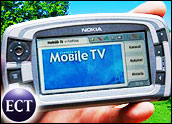
Marketers have always wanted to track their customers’ every move. Now, new scanning technologies linked to the Internet, may enable them to do so. Earlier this month ratings service Arbitron, Inc. and advertising specialty producer VNU disclosed that they have agreed to deploy during the next nine months a pilot project to collect multi-media purchase data from consumers.
The pilot project, dubbed Project Apollo, will debut with a panel of more than 6,000 American households. It has been in the works for a year-and-a-half.
“This agreement reflects the continuing progress that our two companies have been making since October, 2004 toward developing and deploying an innovative national marketing research service based on a portfolio of technologies and other resources from multiple companies,” said Susan Whiting, president and CEO of Nielsen Media Research, a division of VNU.
Popping Up All Over
Various other advertising agencies and online marketers have also been creating new tracking technologies, though the projects have not been as high-profile as the Arbitron and VNU deal.
An interactive travel agency called usdm.net, for example, monitors consumer exposure to ads “and can track and measure impressions,” said project spokesperson Sara Jackson Zaval . “They can also track consumers behaviorally.”
Based in Corpus Christi, Texas, usdm.net, which stands for U.S. Destination Marketing, Inc., also owns its own travel portal, OfficialTravelGuide.com.
Marketers are also measuring consumers’ receptivity to marketing messages sent by e-mail, not just their impressions of Web pages.
ExactTarget.com, an e-mail service provider, and WebTrends.com, a maker of tracking technology, partnered recently to enable users to send e-mail marketing messages and determine, in real-time, “when it was delivered, if it was opened, if the reader clicked on links, and how long they stayed on a particular Web page,” said ExactTarget.com spokesperson Linda Muskin.
Analyzing Behavior
Based on what the consumers did when interacting with the e-mail, the technology tool could also trigger an automatic e-mail response. For example, if you got an e-mail, clicked through the site, but abandoned a shopping cart, that action could trigger an e-mail with an incentive, offering you free shipping, suggesting other colors and similar products. “This is all part of data driven, or left-brain, marketing,” Muskin said.
Other plans in development include an initiative begun by Edmunds.com, Inc., a leading online source for consumers for information about automobiles. The company is implementing new tracking technology “and will soon be able to analyze the behavior of individuals who look at a specific ad on our site to see if people who see a specific ad will go to other, related areas of our site compared to people who did not see the ad,” said Pam Krebs, director of communications strategy at the Santa Monica, Calif.-based firm.
“For example, what is the likelihood that someone who sees a Toyota ad in our new car index pages will go to the Toyota vehicle pages v. someone who never saw the Toyota ad?” she said.
Site-Hopping Cookies
Krebs said that there are even more advanced technologies out there — like cookies that track consumers from site to site. “If an advertiser is running creative on multiple sites where the pixels are placed, they get a clearer picture of exactly where and when they were exposed to, or interacted with, specific ads,” said Krebs.
The reason that the technologies are debuting in this niche — including a new, emerging tool called call and proxy technology — is that online marketing agencies are being asked to verify that their ads produce results.
“We agency people are under increasing pressure to document results to justify programs,” said Irv Hamilton, a publicist with the E-agency, based in Oakland, Calif. “Monitoring technology is expanding quickly and provides us with new tools.”
Project Apollo, which is among the largest current projects of its kind, will track with its pilot panel launching later this year the exposure of individuals to ads on the ‘Net, as well as on traditional media.
Awaiting Results
A tracking technology called a Portable People Meter, similar to a mobile phone, has been adapted for the project, and, combined with other, networked technologies, will enable Nielsen to track every purchase by consumers, both online and offline.
“The Project Apollo pilot panel will provide advertisers what they have been asking for — a means to magnify the effectiveness of their marketing,” said Steve Morris, president and CEO of Arbitron, Inc.
Some aren’t convinced quite yet that the effort will be successful. Dave Stanton, a spokesman for Knowledge Networks, developer of media measurement technology, said the Arbitron project will not be pervasive because “Project Apollo can only measure someone’s media activity if they agree to be part of the survey.”
























































G’day
After reading you artical on tracking consummer online, well wake up, this is a new day, this sort of thing has been going on for some time now. As a consummer I AM sick and tried of people like you, who think that it’s ok. Well it’s not on. What are cookies? If cookies where not doing the job they where designed for, and that is to track consummers and then sell that information to others, who then bombard your inbox with crap. I for one do not get any re-embursment, but the companys are using my name, my internet email address. What planet are you from? You see people like you do not do this sort of thing because you like it, but because you can make $$$$$$$$$$$ and that I think, makes you feel important, well it’s only an illusion.
Happy landing on what ever planet your on, and stay away from Earth.